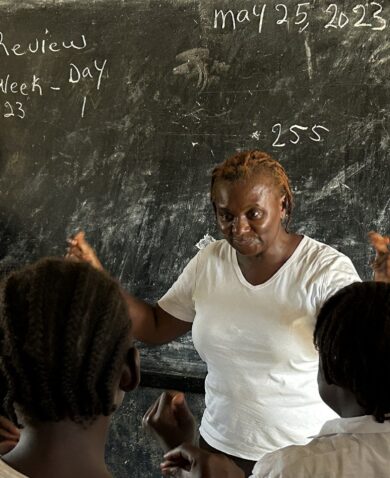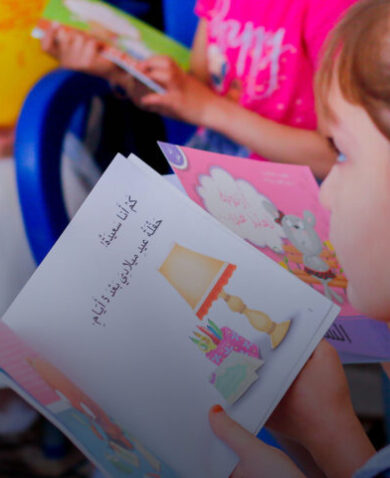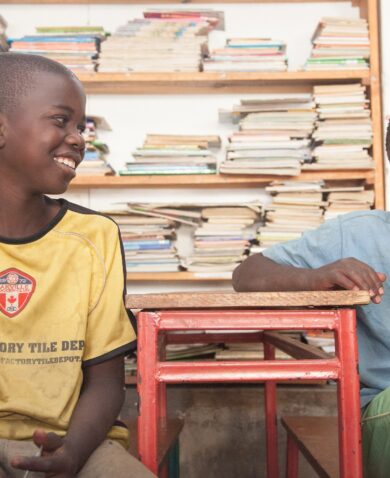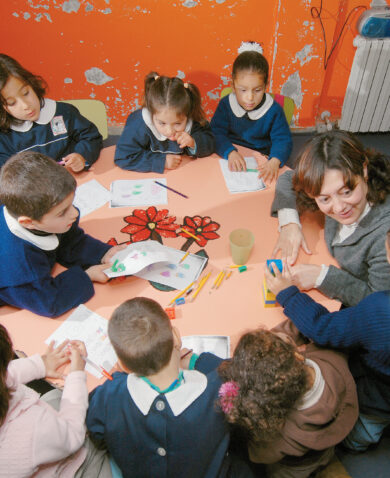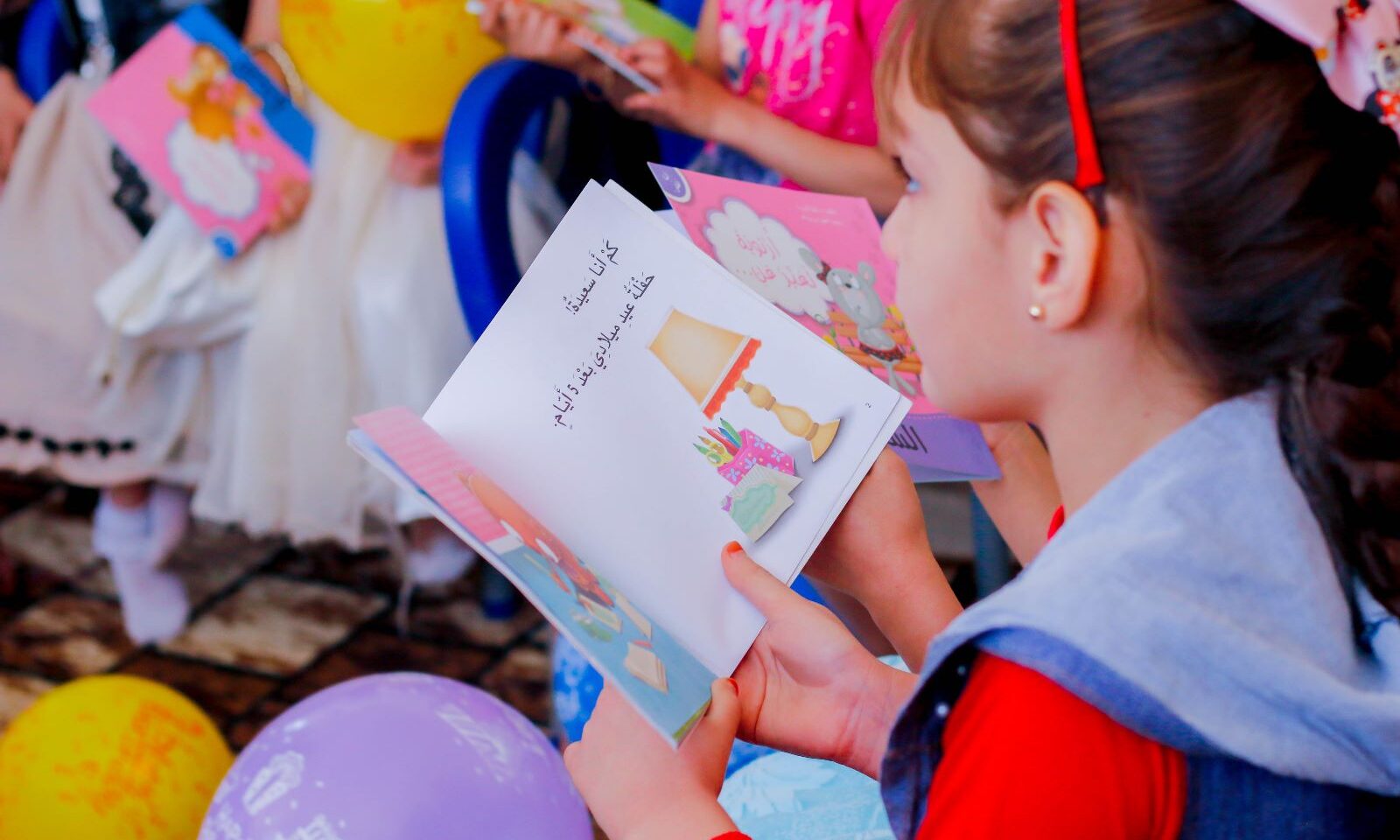
It Takes a Village: How to Build Community Ownership in Child Safeguarding
November 26, 2024 | 5 Minute ReadSafeguarding is everyone’s responsibility. But how do we engage everyone in safeguarding? UK FCDO’s Syria Education Programme, also known as Manahel, implemented by Chemonics UK, has shown us an innovative way to bring together stakeholders in strengthening child safeguarding. Like any meaningful safeguarding initiative, this approach grew out of collaborative discussions with the community.
The community in this case is located in Northwest Syria, a volatile region which is administered by multiple governments and lacks fully developed safeguarding regulations. Since 2018, Manahel has been working in the region to deliver access to safe, inclusive quality learning opportunities, keeping schools functioning and focusing on curriculum, pedagogy, and child protection. Over this period, Manahel has supported 655,000 children.
To enhance the safeguarding of children, Manahel supported Idleb and Aleppo governorates to introduce a new safeguarding policy and implement reforms. However, policy change was only the start of a process to embed community accountability into safeguarding measures. In 2020, Manahel established Community Committees, an initiative placing the community at the centre of safeguarding efforts. Each committee includes parents, children, safeguarding officers, and head teachers, with two members from the school and at least three from the community. The committees’ mandate is to foster collaboration between the community and educational institutions to safeguard children and empower parents to address challenges and mitigate risks. From small beginnings, the initiative has now grown to include 228 school-level committees, eight district committees, and one provincial committee which oversees the others.
A mutually beneficial partnership
In the complex and challenging setting of Northwest Syria, Manahel has found that community involvement has been an essential component to help create stability and build resilience. Our work has shown us that safeguarding strategies must be adaptable to rapidly changing situations, and communities are best placed to identify developing concerns early on. For these reasons, Manahel’s safeguarding strategy prioritises cultivating community leadership, embedding it into the education system to foster a lasting culture of ownership.
Ongoing dialogue and awareness are key to creating ownership. Community committees stay in touch with other community members through established WhatsApp groups, where they share updates on their work plans and any immediate concerns. This open line of communication keeps parents informed and mobilises their support, making them active participants in the safeguarding process.
A committee member, Haleem, shared, “It was heartwarming to see our community coming together to create a protective environment within families and the local community for our children.”
Manahel also provides microgrants to empower community committees and strengthen their role as guardians of safe learning environments. Through this funding approach, thousands of local and community-led initiatives have been implemented, positively affecting 335,000 children by improving safety and inclusivity in schools. It is remarkable that these initiatives often go beyond programme funding, as committees mobilise their communities to raise additional funds, donated materials, and organise volunteer labour. This not only extends the reach of each microgrant but also fosters a powerful sense of shared responsibility, with every community member playing a role in safeguarding children.
Locally developed solutions
Driven by local insight and resourcefulness, community committees have been instrumental in identifying and addressing immediate safeguarding needs within schools. For example, one community committee identified a safeguarding risk caused by the lack of toilet facilities on the school grounds. At this school, students attended classes in tents and had to use toilet facilities in nearby private buildings where they might be at risk. The committee reached out to parents, seeking their support in transforming the school environment. The response from parents was overwhelming, with many of them contributing both in kind and volunteer support. Within weeks, a basic toilet facility had been constructed, providing students with access to safe and hygienic restrooms. The importance of this initiative should be understood in light of an early survey conducted by Manahel in 2018, which found that 82% of students reported feeling safest within the school premises.
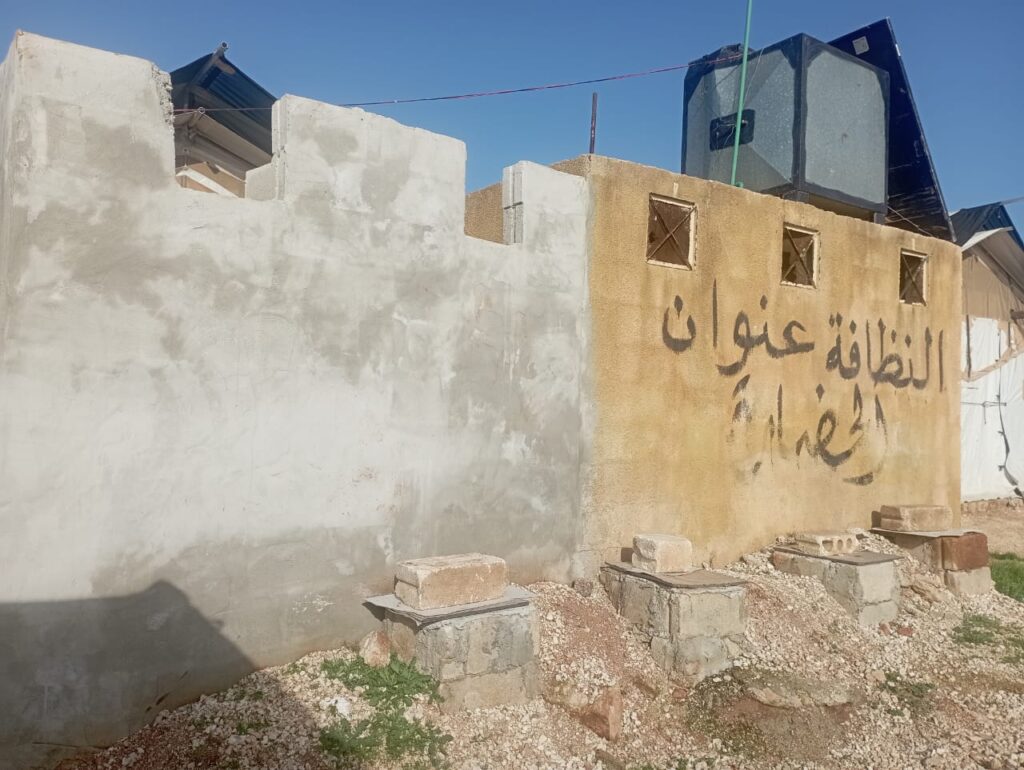
“I would like to thank our community committee for building toilets for us. I used to worry about going outside the school to strangers’ houses, and I was scared of getting caught in a bombing. Now, I don’t feel scared when going to the toilet!” said a fourth-grade student at the school.
Amplifying local voices
Community Committees are a practical expression of Chemonics’ commitment to empowering and amplifying local voices. They are active partners in safeguarding awareness campaigns and frequently take the lead in identifying safeguarding concerns, working alongside Manahel to develop targeted, community-focused solutions.
The committees have also used awareness raising to catalyse social change. When the new safeguarding policy and reforms were introduced in schools, schools initially faced resistance from the communities, especially regarding corporal punishment. This form of child discipline has been the norm in the communities for a long time, and some teachers and parents found these new guidelines restrictive. Understanding the benefits of the policy, Community Committees took the lead in spreading awareness in the community. They first advocated for the policy changes with key figures and community leaders and sought support from community radio programmes to discuss the impact of corporal punishment on children. As a result of their advocacy, local Imams emphasised the importance of safeguarding children during their Friday prayer sermons, effectively reaching many community members. These efforts to change practice were increasingly well-received by communities, and school leaders reported that implementing the policy became easier.
The work of Community Committees is further supported by robust reporting mechanisms and regular awareness sessions, where students are reminded of how to report their safeguarding concerns. School safeguarding leads, sponsored by Manahel, are well-equipped to handle reports in a survivor-centred manner. In the past, school safeguarding leads have shared advisory material with the community committees, based on lessons learned in case management. The community committees’ ongoing efforts to raise mental health awareness is a result of such collaboration. For example, observing an increase in student suicide rates and drawing on lessons learned from reported cases, the safeguarding leads discussed the issue with the committees. The committees recognised this as a priority issue and have now partnered with the World Health Organization and civil society members to raise awareness.
In conclusion, Manahel has shown the transformative power of community-driven safeguarding. Placing the community at the heart of safeguarding efforts not only strengthens the immediate safety of children but also cultivates lasting resilience and stability in communities. In this way, the commitment of the Community Committees has been able to transform safeguarding into a shared and collective endeavour, ensuring that local voices take the lead in tackling complex challenges.
This Community Committee model demonstrates that true ownership of safeguarding lies not in top-down mandates but in empowering communities to act, generate innovative solutions and collaborate towards the common goal of protecting the most vulnerable. As we move forward, the lessons learned from Manahel remind us that safeguarding is not a one-time initiative but a continuous, collective effort that thrives when people come together to ensure everyone’s safety and well-being.
Posts on the blog represent the views of the authors and do not necessarily represent the views of Chemonics.
In Focus
Check out what’s happening at Chemonics.


















